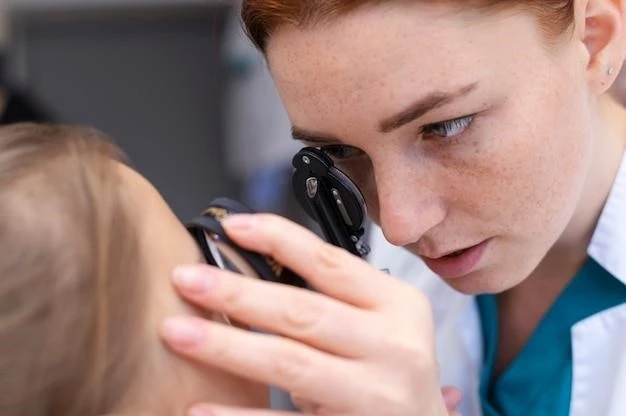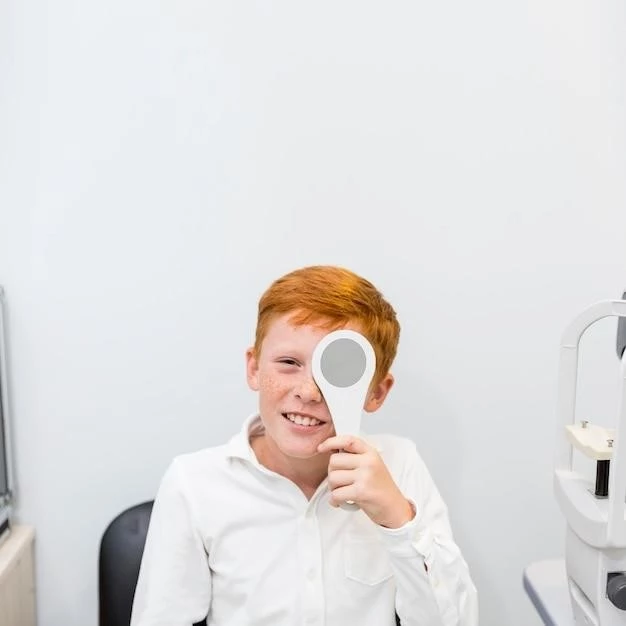Overview of Brittle Cornea Syndrome
Brittle Cornea Syndrome is a rare genetic disorder characterized by thinning and weakening of the cornea.
Definition and Background
Brittle Cornea Syndrome is a rare inherited connective tissue disorder that affects the cornea, leading to increased risk of corneal rupture and vision impairment. It is caused by mutations in genes responsible for collagen production, particularly in Type XII collagen. The condition can vary in severity, with symptoms often appearing in early childhood. Early diagnosis and appropriate management are crucial in preserving vision and preventing complications.
Causes of Brittle Cornea Syndrome
Brittle Cornea Syndrome is primarily caused by genetic mutations affecting collagen production.
Genetic Mutations
Genetic mutations in genes responsible for collagen synthesis, particularly COL12A1 and ZNF469, are implicated in Brittle Cornea Syndrome. These mutations lead to abnormal collagen fibrillogenesis, resulting in weakened and thin corneas prone to rupture. The autosomal recessive inheritance pattern is commonly observed in individuals affected by this syndrome. Understanding the genetic basis is crucial for accurate diagnosis and targeted treatment approaches.
Symptoms and Diagnosis of Brittle Cornea Syndrome
Brittle Cornea Syndrome presents with thin corneas, high myopia, and an increased risk of corneal rupture.
Clinical Presentation
The clinical presentation of Brittle Cornea Syndrome includes thinning of the cornea, severe nearsightedness (high myopia), corneal astigmatism, and a tendency for corneal ruptures. Individuals may experience recurrent corneal erosions and other corneal complications. Ophthalmological examination and imaging techniques are crucial in diagnosing this rare condition.
Diagnostic Process
Diagnosing Brittle Cornea Syndrome involves a thorough ophthalmological evaluation, including corneal thickness measurements, visual acuity tests, and genetic testing to identify collagen gene mutations. Imaging studies such as corneal topography and optical coherence tomography may also aid in the diagnosis. As the condition can vary in severity, a multidisciplinary approach involving ophthalmologists and geneticists is essential for accurate diagnosis and appropriate management;
Treatment Options for Brittle Cornea Syndrome
Treatment of Brittle Cornea Syndrome involves a combination of medical and surgical interventions.
Medical Management
Medical management of Brittle Cornea Syndrome focuses on lubricating eye drops to prevent corneal abrasions, rigid contact lenses to improve vision, and regular monitoring of corneal health. In some cases, oral vitamin C supplements may be recommended to support collagen production and strengthen the cornea. Close follow-up with an ophthalmologist is essential to monitor disease progression and adjust treatment as needed.
Surgical Interventions
Surgical interventions for Brittle Cornea Syndrome may include corneal transplantation, keratoplasty, or the use of amniotic membrane grafts to strengthen and support the cornea. These procedures aim to improve vision, reduce the risk of corneal ruptures, and enhance overall corneal stability. Close post-operative monitoring and careful management are essential to optimize surgical outcomes and maintain long-term corneal health.
Genetic Inheritance Patterns of Brittle Cornea Syndrome
Brittle Cornea Syndrome can be inherited through various genetic inheritance patterns.
Autosomal Dominant Inheritance
Brittle Cornea Syndrome can be inherited in an autosomal dominant pattern, where a single copy of the mutated gene from one parent is sufficient to cause the condition. Individuals with this inheritance pattern have a 50% chance of passing the mutated gene on to each of their offspring. Genetic counseling is crucial to assess the risk of the condition in future generations and to provide support for affected families in making informed decisions about family planning.
Autosomal Recessive Inheritance
Brittle Cornea Syndrome can also be inherited in an autosomal recessive pattern, requiring two copies of the mutated gene – one from each parent – to manifest the condition. Carriers of a single mutated gene are typically unaffected but can pass the gene on to their offspring. Genetic testing plays a critical role in identifying carriers and assessing the risk of the condition in families with a history of Brittle Cornea Syndrome. Genetic counseling is essential to guide families in understanding the implications of this inheritance pattern.
X-Linked Inheritance
X-Linked Inheritance of Brittle Cornea Syndrome occurs when the mutation responsible for the condition is located on the X chromosome. This pattern affects males more frequently, as they have only one X chromosome. Females with one mutated gene are often carriers but may exhibit milder symptoms due to X-chromosome inactivation. Genetic testing and counseling are essential in families with X-linked inheritance to assess carrier status, provide reproductive guidance, and offer support to affected individuals.

Research Advances and Management Strategies
Continuous research in Brittle Cornea Syndrome aims to enhance diagnostic tools and develop targeted therapies.
Current Research Findings
Recent research on Brittle Cornea Syndrome has focused on identifying novel genetic mutations associated with the condition, improving early diagnostic methods, and exploring potential gene therapy approaches. Studies are investigating the underlying mechanisms of corneal thinning and fragility to develop more effective treatment strategies. Collaborative efforts among researchers worldwide are crucial in advancing our understanding of this rare disorder and improving patient outcomes.
Vision Impairment Management
Managing vision impairment in Brittle Cornea Syndrome involves tailored approaches such as specialized contact lenses, visual aids, and low vision rehabilitation programs. Ongoing monitoring of visual function and regular eye examinations are essential to address any changes in vision and implement appropriate interventions. Collaborating with low vision specialists and optometrists can help individuals with Brittle Cornea Syndrome optimize their visual capabilities and enhance their quality of life.
Quality of Life Considerations
Enhancing the quality of life for individuals with Brittle Cornea Syndrome involves comprehensive support networks, access to vision rehabilitation services, and psychological counseling to address emotional challenges. Social support, adaptive technologies, and educational resources play a crucial role in helping affected individuals navigate daily activities and maintain independence. Promoting awareness and understanding of the condition within the community can foster inclusivity and improve the overall well-being of individuals with Brittle Cornea Syndrome.
